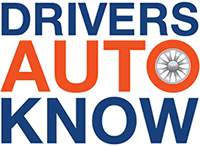Buying a car is exciting. It’s hard not to let emotion influence your decision. We are human emotions, after all. However, don’t get too antsy. Balance out your intuition with a healthy dose of logic. Here are seven common car shopping mistakes to avoid (#1 sounds backwards but it’s true!).
1. Buying a car at tax time
It makes sense to spend your tax refund on a down payment. That sounds like a productive use of money, but it would be better to deposit that check in a savings account and wait a few months.
Have you ever noticed that car dealers are super busy at tax time? That’s because everybody else had the same idea! It’s hard for a buyer to find a good deal in a seller’s market (supply and demand, folks, since covid).
The are other good times to buy a car; research what is best for your brand of interest.
2. Failing to make a budget
Never spend above your means. Track your income and expenses for a few months. Find some unnecessary expenses that can be cut with ease. Once you find a vehicle you like, and the suffix after the name of vehicle (L, XL, etc – you get the ideas) and begin to calculate how much money you could afford to spend on a monthly loan.
Remember to add taxes (a huge amount), Loan interest, extended warranties, and the additional cost of auto insurance.
3. Putting style before safety
The average driver logs 13,476 miles every year. A lot of things go wrong in that many miles.
It’s fun to drive fast, but don’t forget you’re operating a dangerous vehicle. Year in and year out between 35,000 – 40,000 people died in fatal car accidents.
Please choose a vehicle that can protect you. Check out crash ratings at trusted sources like the National Highway Traffic Safety Agency and the Insurance Institute for Highway Safety.
4. Only shopping at one dealer
Shop at a minimum of three dealers. Do some car shopping online first to see what kinds of offers are available in your area. Know that one of the most important items driving your monthly is your credit score. High rredit scores are directly related with better interest rates. Ask, ask, ask about getting better interest rates for those who fall into a good to exceptional credit rating.
If you’re not sure where to start, do a Google search for: “[your city] cars for sale.” Send an email to ask for more info. Make sure to mention you’re comparing prices. That might encourage the sales advisor to take you more seriously. Be sure to check the reviews of this dealership. Your experience matters, and it can vary tremendously depending upon not just the dealership, but also the sales advisor you match up with.
5. Making an impulsive decision.
Buying a new car is a major commitment. Even if you’re 95% sure that you must have this car, sleep on it.
Make a pro/con list the next morning. Be objective. Leave emotion out of it. This is not the time to trust your gut. Instead, listen to your inner accountant.
6. Assuming buying is better
New cars are terrible investments. In fact, the truth is, they aren’t really an investment, as an investment suggests it will gain money over time. New vehicles lose almost about 20-25% of their value within the first year of ownership. If you have a very low or restricted budget, it may not be wise to to buy a new car.
Perhaps leasing is in store for you. A good way to “gauge” a lease price, is it’s about 90-100$ less a month than owning a car. Of course, that’s the rub for some of you. There is no ownership and other restrictions apply, like mileage.

